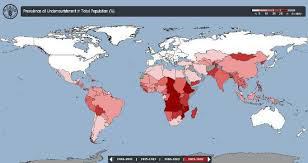You have until 30 October to submit to [email protected] a paper for the WEA online conference Food and Justice. from Asad Zaman If any group of concerned citizens would gather to discuss economic problems, it would seem natural to begin with the problem of feeding the hungry. Strangely enough, one would not encounter this problem within a standard course of study of economic theory at any of the leading universities throughout the world. This is due to two major mistakes made in the formulation of conventional economic theories currently being taught and practised throughout the globe. The first mistake is the idea that the goal of an economic system is the production of wealth, broadly defined. For example, Adam Smith takes the fundamental economic problem to be the production of wealth. The maximisation of GNP per capita currently forms the core of economic growth theory. The value of human life can be evaluated in terms of how much wealth the human can produce. This also accounts for the use of the degrading term ‘human resource’, which basically puts humans on a par with other resources, like factories and machines, as inputs to the production process. A revolution in economic theory would result if we replace this completely mistaken idea with its opposite: the goal of an economic system is to increase human welfare.
Topics:
Editor considers the following as important: Uncategorized
This could be interesting, too:
tom writes The Ukraine war and Europe’s deepening march of folly
Stavros Mavroudeas writes CfP of Marxist Macroeconomic Modelling workgroup – 18th WAPE Forum, Istanbul August 6-8, 2025
Lars Pålsson Syll writes The pretence-of-knowledge syndrome
Dean Baker writes Crypto and Donald Trump’s strategic baseball card reserve
You have until 30 October to submit to [email protected]
a paper for the WEA online conference Food and Justice.
from Asad Zaman
I f any group of concerned citizens would gather to discuss economic problems, it would seem natural to begin with the problem of feeding the hungry. Strangely enough, one would not encounter this problem within a standard course of study of economic theory at any of the leading universities throughout the world. This is due to two major mistakes made in the formulation of conventional economic theories currently being taught and practised throughout the globe. The first mistake is the idea that the goal of an economic system is the production of wealth, broadly defined. For example, Adam Smith takes the fundamental economic problem to be the production of wealth. The maximisation of GNP per capita currently forms the core of economic growth theory. The value of human life can be evaluated in terms of how much wealth the human can produce. This also accounts for the use of the degrading term ‘human resource’, which basically puts humans on a par with other resources, like factories and machines, as inputs to the production process.
f any group of concerned citizens would gather to discuss economic problems, it would seem natural to begin with the problem of feeding the hungry. Strangely enough, one would not encounter this problem within a standard course of study of economic theory at any of the leading universities throughout the world. This is due to two major mistakes made in the formulation of conventional economic theories currently being taught and practised throughout the globe. The first mistake is the idea that the goal of an economic system is the production of wealth, broadly defined. For example, Adam Smith takes the fundamental economic problem to be the production of wealth. The maximisation of GNP per capita currently forms the core of economic growth theory. The value of human life can be evaluated in terms of how much wealth the human can produce. This also accounts for the use of the degrading term ‘human resource’, which basically puts humans on a par with other resources, like factories and machines, as inputs to the production process.
A revolution in economic theory would result if we replace this completely mistaken idea with its opposite: the goal of an economic system is to increase human welfare. Wealth is important only to the extent that it can bring about increases in human welfare. In conjunction with wealth, many other types of invisible inputs, such as social capital, cultural norms and institutional structures also play an important role in determining human welfare, broadly understood in terms of all dimensions of life which contribute to our collective well-being. Wealth, industry and production of goods and services are resources to be used to help improve human lives. A central goal of economics should be the relation between resources, and their relative efficiency at contributing to human welfare. In particular, providing food to the hungry is clearly the single most important and universal invariant in production of human welfare. The fundamental economic problem is to study how to use a given amount of wealth to produce the maximum amount of welfare. read more
